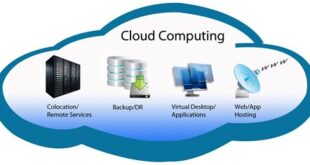
What are Cloud Solutions?
In today’s digital era, businesses and individuals are increasingly relying on cloud solutions to store, access, and manage their data and applications. But what exactly are cloud solutions? In simple terms, cloud solutions refer to a set of services and technologies that enable users to store their data and applications remotely over the internet, rather than on their local computer or physical storage devices.
One popular cloud solution that businesses often turn to is Amazon Web Services (AWS). AWS provides a wide range of cloud services that cater to different needs, such as storage, computing power, and database management. By utilizing AWS, businesses can reduce their reliance on physical servers and hardware, and instead take advantage of the scalability and flexibility offered by cloud solutions.
Cloud solutions offer numerous benefits that make them a compelling choice for businesses of all sizes. One significant advantage is the ability to access data and applications from anywhere, as long as there is an internet connection. This means that users can work remotely, collaborate with team members in different locations, and access their files and software on various devices, including laptops, smartphones, and tablets.
The scalability of cloud solutions is another key attribute that sets them apart. With traditional on-premises infrastructure, businesses often need to invest in expensive hardware upgrades to accommodate increased data and traffic demands. In contrast, cloud solutions allow users to easily scale their resources up or down, depending on their needs, without hefty upfront costs or time-consuming installations.
Furthermore, cloud solutions provide enhanced data security compared to local storage options. Cloud service providers implement robust security measures to protect user data, such as encryption, firewalls, and regular system updates. Additionally, cloud solutions offer automated data backups, minimizing the risk of data loss in case of unforeseen events, like hardware failures or disasters.
One notable example of a cloud solution that focuses on data security is Microsoft Azure. Azure offers a wide range of services designed to help businesses protect their data, defend against cyber threats, and comply with industry regulations. This level of security and compliance is often challenging to achieve for organizations relying solely on traditional, on-premises IT infrastructure.
Cloud solutions have gained significant popularity due to their cost-effectiveness. By utilizing cloud services, businesses can avoid the upfront costs associated with purchasing and maintaining physical servers and hardware. Instead, they can opt for a pay-as-you-go model, only paying for the resources they actually use. Additionally, cloud solutions eliminate the need for ongoing hardware maintenance and software updates, saving both time and money.
It is worth noting that while cloud solutions provide numerous advantages, organizations should carefully consider their specific needs, budget, and data requirements before migrating to the cloud. In some cases, a hybrid approach that combines both on-premises infrastructure and cloud solutions may be more suitable.
In conclusion, cloud solutions offer a range of services and technologies that enable users to store, access, and manage their data and applications remotely over the internet. With benefits such as flexibility, scalability, enhanced security, and cost-effectiveness, cloud solutions have become an integral part of many businesses’ IT strategies. Whether it’s AWS, Azure, or other cloud platforms, organizations can leverage the power of cloud solutions to streamline their operations, increase productivity, and stay ahead in today’s digital landscape.
For detailed information on cloud infrastructure and its components, you can refer to our in-depth guide on cloud infrastructure. Here, we explain the building blocks of cloud infrastructure and their significance.
Popular Cloud Solutions Providers
When it comes to cloud solutions, there are a few major players that dominate the market. One of the most popular and widely used cloud solutions providers is Amazon Web Services (AWS). AWS offers a comprehensive suite of cloud computing services, including storage, databases, analytics, machine learning, and more. With their vast array of services, AWS caters to businesses of all sizes and industries.
Another prominent name in the cloud solutions space is Microsoft Azure. Azure is Microsoft’s cloud computing platform that offers a wide range of services and tools for businesses to build, deploy, and manage applications through Microsoft-managed data centers. Just like AWS, Azure provides various services such as virtual machines, storage, AI capabilities, and IoT (Internet of Things) solutions.
Google Cloud Platform is also a major player in the cloud solutions industry. As a subsidiary of Google, Google Cloud Platform offers a multitude of services, including computing, storage, networking, databases, and machine learning. What sets Google Cloud Platform apart is its robust data analytics capabilities, making it a top choice for businesses that heavily rely on data-driven insights.
In addition to these well-known cloud solutions providers, there are also other players in the market that cater to specific niches and industries. For example, IBM Cloud is often favored by enterprises looking for highly secure and scalable cloud solutions. Oracle Cloud offers cloud services tailored specifically for businesses in the enterprise software market. Salesforce, known for its customer relationship management (CRM) platform, also provides cloud solutions that focus on improving sales and marketing processes.
When choosing a cloud solutions provider, it’s important to consider factors such as the specific needs of your business, the scalability and reliability of the services offered, the level of security provided, and the overall cost. Each cloud solutions provider offers their own unique set of services and features, so it’s crucial to thoroughly research and evaluate each option to find the best fit for your organization.
Ultimately, cloud solutions have revolutionized the way businesses operate and store their data. Whether you’re a startup looking to scale quickly or an established enterprise seeking agility and efficiency, cloud solutions can provide the flexibility and scalability needed to stay ahead in today’s digital landscape. So, why not explore the various cloud solutions providers and propel your business into the future?
To learn about various cloud services available, you can read our comprehensive guide on cloud services. This article covers different types of cloud services and their use cases.
Cloud Solutions in Various Industries
Cloud solutions have transformed the way businesses operate across a multitude of industries. From healthcare to finance, retail to manufacturing, organizations are leveraging the power of the cloud to improve efficiency, accessibility, and overall performance. In this article, we will explore how cloud solutions are reshaping these sectors and the benefits they bring to each industry.
1. Revolutionizing Healthcare with Cloud Solutions
The healthcare industry is at the forefront of embracing cloud solutions. The cloud offers a secure platform for storing and accessing patient data, allowing healthcare providers to collaborate seamlessly and provide better patient care. With cloud-based electronic health records (EHR), medical professionals can easily access patient information, track medical history, and reduce administrative tasks, resulting in improved efficiency and streamlined workflows.
Additionally, cloud solutions enable telemedicine, a rapidly growing field that connects doctors with patients remotely. Through cloud-based platforms, doctors can conduct virtual consultations, monitor vital signs, and even perform remote surgeries. This not only improves access to healthcare in remote areas but also reduces costs and eliminates the need for unnecessary travel.
2. Cloud Solutions in the Finance Industry
The finance industry has embraced cloud solutions to enhance security, streamline operations, and provide more personalized services. Cloud platforms offer scalable storage options, enabling financial institutions to store vast amounts of data securely. With cloud-based data analytics tools, they can derive valuable insights from this data, making informed decisions and predicting market trends. This helps financial institutions stay competitive in a rapidly changing market.
Cloud solutions have also revolutionized customer experience in the finance industry. Through cloud-based banking systems, customers can access their accounts and perform transactions seamlessly from anywhere at any time. Financial institutions can offer personalized recommendations and financial planning services based on customer data analysis, creating a more tailored and convenient experience for their clients.
3. Retail Industry Advancements with Cloud Solutions
The retail industry has witnessed significant advancements with the adoption of cloud solutions. Retailers can now efficiently manage inventory across multiple channels, synchronize pricing and promotions, and gain real-time insights into customer behavior. With cloud-based point-of-sale systems, retailers can process transactions quicker, reducing wait times and improving the overall shopping experience.
Cloud solutions also enable retailers to provide personalized recommendations and targeted advertisements based on customer data analysis. By leveraging the cloud, retailers can understand customer preferences, shopping patterns, and even predict future trends. This allows for more effective marketing strategies and better customer engagement.
4. Reshaping Manufacturing Processes with Cloud Solutions
The manufacturing industry has benefited greatly from the integration of cloud solutions, revolutionizing production processes, supply chain management, and overall efficiency. Through cloud-based manufacturing systems, manufacturers can monitor and control production in real-time, track inventory levels, and optimize workflows. This results in reduced downtime, minimized waste, and improved productivity.
Cloud solutions also enable seamless collaboration between suppliers, manufacturers, and distributors. By sharing real-time data through the cloud, stakeholders can coordinate operations, track deliveries, and anticipate any potential disruptions in the supply chain. This leads to improved communication, better inventory management, and ultimately, enhanced customer satisfaction.
5. The Future of Cloud Solutions
As technology continues to evolve, so does the potential of cloud solutions in various industries. The scalability, flexibility, and cost-effectiveness of cloud-based systems make them highly attractive to businesses of all sizes. From startups to multinational corporations, organizations are leveraging the power of the cloud to drive innovation, facilitate collaboration, and optimize processes.
With advancements in artificial intelligence (AI) and machine learning (ML), cloud solutions will become even more intelligent and tailored to specific industries. They will enable businesses to automate repetitive tasks, make data-driven decisions, and deliver personalized experiences to customers.
In conclusion, cloud solutions have revolutionized industries such as healthcare, finance, retail, and manufacturing, shaping the way businesses operate and serve customers. The benefits of cloud technology are vast, including improved efficiency, enhanced security, seamless collaboration, and personalized experiences. As the world becomes increasingly digital, the cloud will continue to be the driving force behind industry transformation and innovation.
If you are interested in understanding the concept of cloud solutions and how they can benefit your business, we recommend reading our pillar article on cloud solutions. This article delves into the key aspects and advantages of implementing cloud solutions.
Security Considerations for Cloud Solutions
When it comes to utilizing cloud solutions, the importance of prioritizing security cannot be overstated. As businesses and individuals increasingly rely on cloud technology to store and manage their data, it becomes crucial to address security concerns and ensure that sensitive information remains protected. In this article, we will delve into some key aspects of security considerations for cloud solutions, including data privacy, data encryption, access controls, and the importance of regularly monitoring for potential vulnerabilities.
One of the primary concerns when utilizing cloud solutions is data privacy. Organizations must be confident that their data remains private and is not accessed or compromised by unauthorized individuals. To safeguard data privacy, it is essential to choose a cloud service provider that offers robust security measures, including strong authentication protocols and encryption mechanisms.
Data encryption is another critical aspect of security considerations for cloud solutions. Encryption transforms data into an unreadable format, ensuring that even if it is intercepted, it remains unintelligible to unauthorized users. When selecting a cloud service provider, it is imperative to understand their encryption methods and whether they align with your organization’s security requirements.
Access controls play a vital role in maintaining the security of cloud solutions. Organizations should have strict access control policies in place to ensure that only authorized individuals can access sensitive data. This involves implementing multi-factor authentication and regularly reviewing and updating user access permissions. By minimizing the number of individuals with access and constantly monitoring user privileges, organizations can significantly reduce the risk of data breaches.
Regular monitoring for potential vulnerabilities is crucial to maintaining the security of cloud solutions. The threat landscape is continually evolving, and cybercriminals employ ever more sophisticated techniques to exploit vulnerabilities. Cloud service providers should have robust monitoring systems in place, capable of detecting and mitigating potential threats promptly.
Additionally, organizations should proactively monitor their own cloud systems, utilizing tools and technologies that help identify anomalies and potential security breaches. By conducting routine security audits and assessments, organizations can stay one step ahead of potential threats.
To further strengthen the security of cloud solutions, it is advisable to implement industry best practices, such as regularly updating software and firmware, implementing firewalls, and regularly backing up data. These measures augment the overall security posture of cloud solutions and enhance resilience against potential attacks.
In conclusion, security considerations should be of utmost importance when utilizing cloud solutions. Data privacy, data encryption, access controls, and regular monitoring for potential vulnerabilities are all crucial elements to address for maximum security. By being proactive and implementing robust security measures, organizations can leverage the benefits of cloud technology while minimizing the risk of data breaches and unauthorized access.
If you are looking for more information on cloud computing, you can check out our article on cloud computing. Here, we discuss the basic concepts and benefits of cloud computing.
 Cloud Solution All Cloud Information
Cloud Solution All Cloud Information








